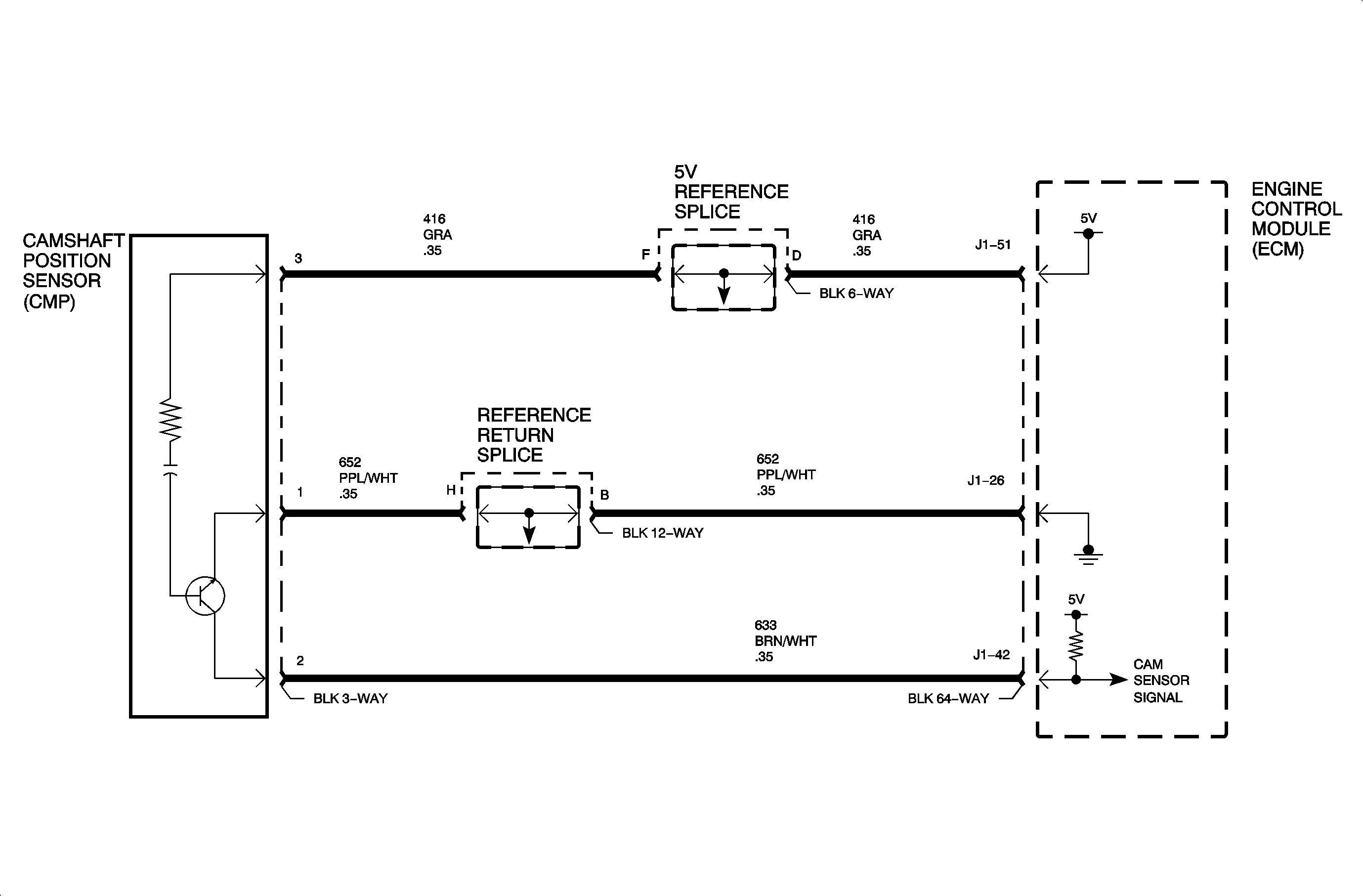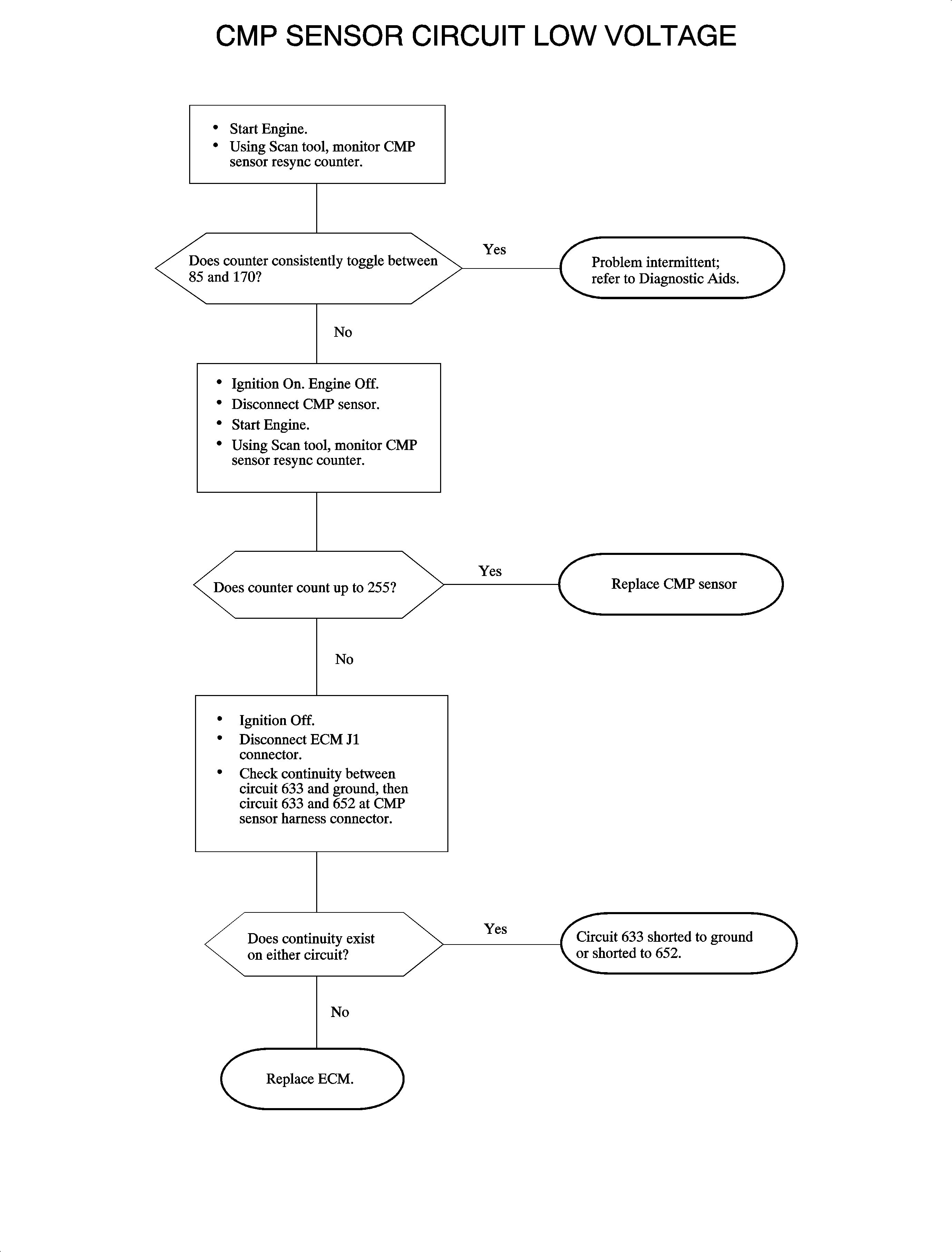
Circuit Description
The camshaft position (CMP) sensor produces an AC voltage of different amplitude and frequency depending on the velocity of the camshaft in order for the ECM to determine the camshaft position. The CMP sensor detects a single tooth on the reluctor wheel. The ECM expects the signal wire to be near 5 volts when the reluctor wheel tooth passes the sensor and near 0 volts during the remainder of the reluctor wheel revolution. The ECM constantly monitors the CMP signal and expects to see a switch from low to high once every two crankshaft revolutions. The camshaft position (CMP) sensor is used to determine which of the two cylinders is on the firing stroke. With the CKP sensor and CMP sensor inputs the ECM can properly synchronize the ignition timing, fuel delivery and engine knock control. DTC P0342 will set if the ECM detects the CMP sensor signal voltage remains low for a calibrated number of camshaft revolutions.
DTC Parameters
DTC P0342 will set if the ECM detects the CMP sensor signal voltage is low for a 8 camshaft revolutions when:
| • | Engine is cranking for at least 3 seconds. |
| OR |
| • | Engine is running. |
| • | Condition exists 2 or more times. |
| • | Condition exists 1 or more seconds. |
DTC P0342 diagnostic runs continuously once the above conditions have been met.
P0342 is a (type B) DTC.
Diagnostic Aids
To locate an intermittent problem use the Scan tool to monitor CMP RESYNC COUNTER with engine cranking/running. If the counter toggles between 85 and 170, the crankshaft pulses correctly are being received.
If the CMP RESYNC COUNTER reads 0 counts, there is a low voltage condition present. If the CMP RESYNC COUNTER reads 255 counts, there is a high voltage condition present.
DTC P0342 can set due to an intermittent short to ground in the CMP circuits.
Make sure the crankshaft position sensor circuit wires are clear of voltage interfering wires. Electromagnetic Interference (EMI) waves can alter the amplitude and frequency of the CMP signal and create invalid CMP pulses.

